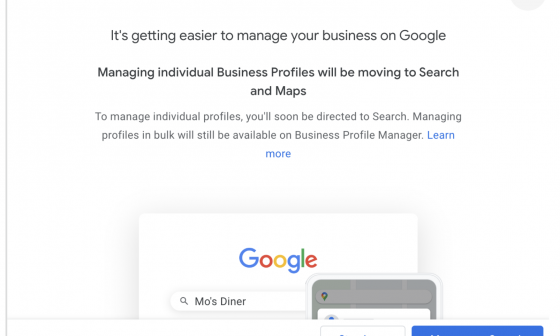There used to be a time when local citations were primary needle movers in the Local SEO world.
If you were starting out, all you had to do was pay someone like “Aleena” to get you listed in 350 directories for $15.
Within a few weeks you’d be ranking.
Nowadays, getting Aleena’s help will barely put you on the map. The Local SEO game has evolved quite a lot. You need to do a whole lot of other things to compete.
Now don’t get me wrong. Citation (Clean up your local citation in 6 simple steps) building is not an outdated SEO strategy. It’s just that their unquestionable authority of determining rankings has become a thing of the past.
I’d say, it’s a classic case of “It runs in the family!”
Yellow Pages – The Great Granddaddy of Citations
Back in the 1960s, when yellow pages first became popular, it was an effective growth hack. Businesses that got themselves listed started seeing an increase in leads.
Eventually, all local businesses got themselves listed. Things reached a point where getting listed in a yellow page didn’t automatically scale your business.
But it became a basic necessity. If you’re a reliable business, you had to be in Yellow Pages!
Citations have had the same journey.
Not long ago, experts considered citations as valuable as “backlinks” for a local business. Citation building became akin to link building in the local SEO world.
Then everyone started building hundreds of citations. You know the rest of the story.
Marketers Ruin everything
Marketers wake up every day and go to sleep every day with one thought in mind –
“How can I get more eyeballs?”
Some wear black hats and some wear white ones. But once they figure out something that works, they go for maximum scale. The ones wearing black also find shady ways to game the system.
It ultimately culminates in a terrible user experience.
Google steps in. The algorithm gets updated. It’s game-over for the black hats and the white hats are forced to play harder.
The new rules will be harder to game. But we’re talking about marketers here. It won’t be long until they ruin everything again.
If you look at the bigger picture, it’s this tug of war that keeps the ball rolling. In a way, marketers force the system to come up with better ways to enhance user experience.
Citations Do Matter – Just that Quality Trumps Quantity
Over the years, the importance of ‘citation quantity’ as a ranking factor has gone down. You can see that in Brightlocal’s SEO Survey that’s conducted annually:
As you can see, the bright red line has had the most significant drop over the years.
This nosedive can be attributed to the ease of creating hundreds of irrelevant citations these days.
This is not just unnecessary but also problematic.
Consistency of information across all platforms is vital. Even if Google becomes smart enough to ignore small mistakes, your customers won’t. There are many studies that denote customers losing trust over businesses that don’t update their information:
Managing hundreds of citations and keeping them updated is a herculean task that’s just not worth your time.
Instead, focus on creating a quality citation portfolio.
Choose citation sources that are likely to rank
Getting listed on YellowPagesBook2Go.com never did anyone any good.
Laser-focus on building citations that matter.
A good citation portfolio should contain the following listings:
- Key listings you cannot live without like Google, Apple Maps, Facebook, Bing, and Yelp
- Aggregators that feed to other large sources like Foursquare and Factual
- Core mapping applications like Here & TomTom
The above citations are known to almost everyone. Getting listed there is a must-have foundation.
The secret sauce is in being in places that are super relevant to your business and the searcher:
- Niche specific citations relevant to your industry
- Location specific citations
An Easy Way to Find Niche and Location Specific Citations
You can identify key citation sources, right now with a simple Google search.
Step 1:
Identify relevant keywords in your industry and search for them. For example, for an Italian restaurant in San Francisco, “pasta” will be a relevant keyword:
As you can see, top listing websites like Yelp, Zomato, Uber Eats and Trip Advisor appear first.
Step 2:
Dig deeper. Checkout at least the first 50 results. Apart from the popular ones, you’ll notice a lot of new hidden gems:
For example, if you offer gluten free pasta, here is a specific listing source:
Similarly, you’ll discover so many unique listings sources.
Step 3:
Document your findings. Have a spreadsheet containing all relevant citation sources. Go to each website and submit your listing. Update the status of your listing in your spreadsheet. If you find this cumbersome, make use of our listings management software.
The problem (30 Common Local SEO Problems & Its Fix) with citation building these days is that even the best companies stop here. Getting your business listed on relevant citation sources is just the beginning. For advanced citation builders, the game has just begun.
Advanced Tip 1: Get Your Citation Sources Indexed
There’s no point in building citations that Google doesn’t know about. Also, most long-tail citations do not get indexed by Google.
You have to make sure that your citations are crawled by Google. Indexed citations will also add to your chances of ranking on the local map pack.
How to Get Your Citations Indexed
Create a page in your website containing all the citation URLs. Submit the page for indexing using Google Search Console.
Darren Shaw from Whitespark used the same strategy for a small business. He found great results as long as the website had decent authority of its own.
According to his study, he started seeing results within a day.
There is also a high possibility that these citations will rank themselves, leading to more customer acquisition.
Advanced Tip 2: Beat the Competition within Listing Websites
Google has eyes everywhere.
They might give more preference to GMB, but your authority in other listing websites matters.
It’s relatively easier to achieve prominence in many of these smaller sites. The competition is usually very low. All it takes is a few good reviews to elevate you to the top very fast.
With a little bit of effort, you can easily outrank more established competitors. Having good authority within citation sources will give your business entity more SEO juice.
Citation Building is Super Relevant (if done the right way)
Companies don’t get results with citations because they don’t think beyond getting listed. They don’t implement the advanced strategies stated above.
Like everything else in online marketing, the game has just evolved. Companies that evolve with the market, will get ahead.
But before you apply the advanced strategies, you need to make sure there are no errors in your existing listings. Use our free scan tool to get the job done.
Here is a bonus section to up your Local SEO game:
Read Google’s Mind
To be effective in local SEO, you have to understand Google’s mentality.
Google’s business relies upon user experience. They count on a variety of ever-evolving metrics for the best results to show up. Nobody really knows how exactly their algorithm works. Even the experts make well-educated guesses.
One thing for sure is that Google has an internal rating system that ranks businesses. The more authority they think your business has, the more it will be favored in SERPs. All the authority-giving factors can be summed up into 3:
1 – The Popularity of your Business
Anything that signifies your business is widely known, boosts your authority. This includes citations, backlinks, and news mentions.
These authority signals are the easiest to acquire. This is why Google is trying to reduce its dependence on these factors every year. But their importance as of now cannot be underestimated. Apart from building a quality citation portfolio, here is an advanced tip to boost the popularity signals of your business:
Acquire Regular Press Mentions with Backlinks using HARO
Reliable businesses are regularly mentioned and quoted by renowned publications. Buying press mentions can be a costly affair. It is ideal to befriend journalists that regularly cover your industry. This would require some deep level of networking.
An easier strategy is to use HARO (Help A Reporter Out) to get free press mentions. HARO is a platform that helps journalists get expert opinions to be included in their content. Many journalists from high DR publications list their queries in HARO.
If you can respond with useful opinions, you will be quoted along with your business. You also get a backlink to the homepage of your website. These types of high-quality links to the homepage are hard to acquire. They send valuable authority signals to Google.
In my experience, for every 10-15 queries you pitch in HARO, you get at least one press-worthy mention and backlink.
2- The Chatter around your Business
What people say about your business says a lot about your brand. It’s a well-known fact that Google started using sentiment analysis on reviews way back in 2009. Twelve years later, they’d be insane to not use these signals to gauge a business. They’ll be analyzing not just Google reviews, but reviews from other high authority directories.
These factors are harder to game. At the very least, you need to have a good business for people to say good things about you. Here are some tips to get more people talking about you:
Make Review Acquisition part of your marketing funnel.
The Marketing funnel is usually obsessed over only until conversions happen.
Many companies don’t focus on converting existing customers into loyal advocates. This vital step will drive more awareness, consideration and conversions in future.
You will have at least a handful (if not more) customers who just love your brand. Let all that love translate into online reviews.
Even the most satisfied customers don’t leave reviews unless you ask them.
You can even offer them special discounts as an incentive. Automating this directly through your CRM will be a game-changer.
As mentioned earlier, have a strategy in place to gain reviews in relevant sites apart from Google. Our top performing clients focus on at least 5 relevant sites for review building.
Respond to Negative Reviews Asap
Apart from the odd spam, negative reviews can be great teachers. It can show you room for improvement. Addressing these problems will pave the way for business growth.
Most people are forgiving. If they feel that the business genuinely cares about them, they’ll spread the word about your awesome support team.
A recent study by Khoros found that 83% of customers felt more loyal to companies that respond and resolve complaints.
Instant response and resolution, will almost always result in updated reviews. Even if your rating goes up by ‘one-star’ it will make a world of a difference.
According to a Harvard study by Michael Luca, a one-star boost in Yelp can increase revenue by 5-9%.
3 – Depth of Engagement your Business Receives
Depth of Engagement translates to meaningful actions taken by users while interacting with your business.
The term “customer engagement” usually sends the marketing brain to a very cliche thought process. There is a tendency to restrict it to what happens after customers enter your website.
There are much more meaningful interactions that can inform Google how people are engaging with your brand. A lot of these happen inside the Google Knowledge Panel. These interactions are almost un-game-able.
How your business fairs here can largely depend on how well you’ve optimized your GMB profile for user experience. Google also tends to trust their own data compared to what they receive from external sources.
Give More Engagement Options to Customers
Restaurants offering pickup options or delivery options are giving customers a better user experience.
Google will know how many people have ordered a pickup or delivery from you. This metric could be non-existent for restaurants that don’t offer this option. Adding custom CTA options can be a game changer.
Track GMB Call Data to Find Red Flags
According to the Brandify-DialogTech Consumer Insights Study 2020, there was a rise in people calling businesses via GMB:
Even after the lockdown was eased, the rates did not go back to normal. This probably indicates a shift in consumer mentality post-COVID. More people feel the need to call businesses before going.
It is also worth noting that the number of people calling a business and going to the website is roughly similar. You need to track this data. If people are not calling your business via GMB it could denote a red flag that has to be fixed.
For example, a recent string of negative reviews is all it takes for people to stop trusting your business. This lack of trust could translate into lesser calls to your number. Once you’re aware of this problem, you can take steps to earn the trust back.
Have a Good GMB Posting Strategy
A sound GMB posting strategy can make your business listing more personalized compared to your competitors.
GMB posting doesn’t help you rank directly. But relevant GMB posts will show up under “Related to your search”:
This experience can prompt more users to engage with your brand. If your listing gets more engagement compared to others, it will boost your authority. Track your GMB data before and after posting regularly. It’s a great way to measure it’s ROI.
To Sum things Up
Getting listed in hundreds of listing websites is a waste of time, money, and energy. Keeping them all updated is close to impossible. Choose your citations sources wisely and invest in growing your authority in each one of them. Respond to reviews regularly and work on improving your star ratings.




















